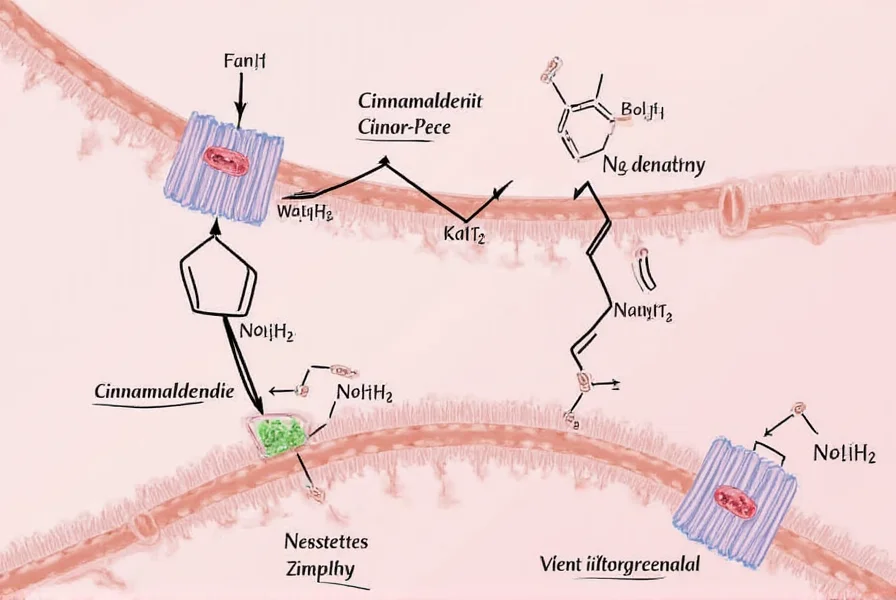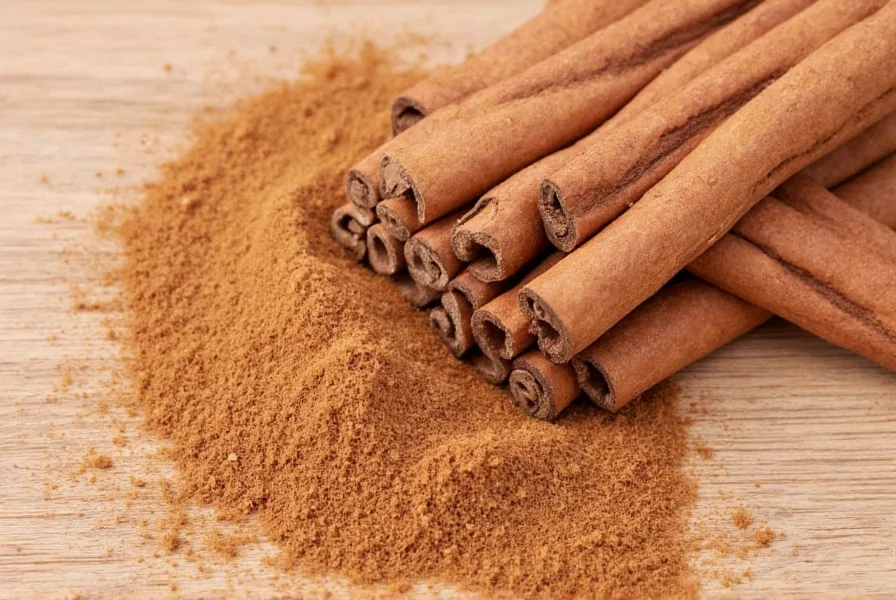For individuals managing blood sugar levels, the question can cinnamon lower blood sugar has gained significant attention. Current scientific evidence suggests cinnamon may offer modest benefits for blood glucose control, but important limitations exist that anyone considering this natural approach should understand.
The Science Behind Cinnamon and Blood Sugar Regulation
Researchers have identified several potential mechanisms explaining how cinnamon might lower blood sugar. The spice contains bioactive compounds including cinnamaldehyde, cinnamic acid, and polyphenols that may improve insulin sensitivity. These compounds appear to mimic insulin activity, enhance glucose uptake by cells, and slow carbohydrate breakdown in the digestive tract.
A 2013 meta-analysis published in the Journal of Medicinal Food reviewed 10 randomized controlled trials involving 543 participants. The analysis concluded that cinnamon supplementation significantly reduced fasting blood glucose levels by an average of 24.59 mg/dL compared to control groups. However, the researchers noted substantial variation between studies in terms of dosage, duration, and participant characteristics.

Comparing Cinnamon Types: Cassia vs. Ceylon
Not all cinnamon provides the same potential benefits or safety profile. Understanding the difference between cinnamon types for blood sugar management is crucial:
| Characteristic | Cassia Cinnamon | Ceylon Cinnamon |
|---|---|---|
| Source | China (Cinnamomum cassia) | Sri Lanka (Cinnamomum verum) |
| Coumarin Content | High (2.1-6.6 mg/g) | Very low (0.004-0.14 mg/g) |
| Typical Daily Dose in Studies | 1-6 grams | 1-3 grams |
| Safety for Regular Use | Limited due to coumarin | Generally safe |
| Research Evidence | More extensive | Emerging but promising |
Coumarin, found in higher concentrations in Cassia cinnamon, can cause liver damage with prolonged high-dose consumption. The European Food Safety Authority recommends limiting coumarin intake to 0.1 mg per kg of body weight daily. For a 150-pound person, this equals approximately 6.8 mg of coumarin—reached with just 1-2 teaspoons of Cassia cinnamon.
What Clinical Research Actually Shows
When examining cinnamon blood sugar clinical trials, several patterns emerge:
- A 2016 study in the Journal of the Academy of Nutrition and Dietetics found 1 gram of cinnamon daily reduced fasting glucose by 18.9 mg/dL in people with type 2 diabetes after 90 days
- Research published in Nutrition Research showed 3 grams daily improved insulin sensitivity but had minimal effect on HbA1c levels
- A comprehensive 2021 review in Diabetes Therapy concluded cinnamon's effects are modest and inconsistent across studies
- Most trials lasted 4-16 weeks, leaving long-term effects uncertain
The American Diabetes Association states: "There's not enough evidence to recommend cinnamon for blood glucose control." This position reflects the inconsistent results and relatively small effect sizes observed in research.
Practical Considerations for Blood Sugar Management
If considering cinnamon for blood sugar control, these evidence-based recommendations matter:
- Dosage matters: Most studies showing benefits used 1-3 grams (about 1/2 to 1 teaspoon) daily of Ceylon cinnamon
- Consistency is key: Effects appear after several weeks of regular use
- Monitor your levels: Track blood glucose before and during cinnamon use
- Choose Ceylon: Safer for regular consumption due to minimal coumarin
- Manage expectations: Effects are modest compared to prescribed medications
Important Safety Considerations
Before adding cinnamon to your regimen, consider these blood sugar management safety factors:
- Cinnamon may interact with diabetes medications, potentially causing hypoglycemia
- Those with liver conditions should avoid Cassia cinnamon due to coumarin content
- Pregnant women should consult healthcare providers before regular cinnamon use
- Cinnamon supplements aren't regulated like medications, so quality varies
- Never discontinue prescribed diabetes medications for cinnamon supplementation
Realistic Expectations for Blood Sugar Management
When evaluating cinnamon vs medication for blood sugar control, the evidence is clear: cinnamon's effects are significantly smaller than pharmaceutical options. Metformin, for example, typically reduces HbA1c by 1-2%, while cinnamon studies show reductions of 0.1-0.5% at best.
The most effective approach to blood sugar management combines evidence-based medical treatment with lifestyle modifications. Cinnamon might serve as a complementary approach for some individuals, but it shouldn't replace proven treatments. Those interested in natural ways to manage blood sugar with cinnamon should discuss this with their healthcare provider as part of a comprehensive management plan.
Conclusion: Evidence-Based Perspective
Current research suggests cinnamon may provide modest blood sugar benefits for some individuals, particularly those with type 2 diabetes. However, the effects are inconsistent across studies and significantly smaller than conventional diabetes medications. Ceylon cinnamon appears safer for regular use than Cassia varieties due to lower coumarin content. Anyone considering cinnamon supplementation for blood sugar management should consult their healthcare provider, continue prescribed treatments, and maintain realistic expectations about potential benefits.
How much cinnamon should I take daily for blood sugar control?
Research suggests 1-3 grams (approximately 1/2 to 1 teaspoon) of Ceylon cinnamon daily may provide potential benefits. Most clinical studies showing positive effects used doses within this range for 4-16 weeks. Higher doses don't necessarily provide additional benefits and may increase safety risks, especially with Cassia cinnamon due to its coumarin content.
How long does it take for cinnamon to lower blood sugar?
Most clinical studies showing blood sugar improvements with cinnamon required 4-12 weeks of consistent daily use. Effects are generally modest and may not be noticeable to individuals without regular blood glucose monitoring. The American Diabetes Association notes that cinnamon's effects, when present, are significantly smaller than those achieved with standard diabetes medications.
Can I replace my diabetes medication with cinnamon?
No, you should never replace prescribed diabetes medications with cinnamon. Research shows cinnamon's blood sugar effects are modest compared to pharmaceutical treatments. Discontinuing prescribed medications without medical supervision can lead to dangerously high blood sugar levels and serious health complications. Always consult your healthcare provider before making changes to your diabetes treatment plan.
Which type of cinnamon is best for blood sugar management?
Ceylon cinnamon (often labeled "true cinnamon") is generally recommended over Cassia cinnamon for regular blood sugar management due to its significantly lower coumarin content. While most research has used Cassia cinnamon, the potential liver toxicity from coumarin makes Ceylon the safer choice for ongoing use. Look for products specifically labeled as Ceylon cinnamon (Cinnamomum verum) from reputable sources.
Does cinnamon lower blood sugar in people without diabetes?
Current research primarily shows blood sugar benefits in people with type 2 diabetes or insulin resistance. Limited evidence suggests cinnamon may have minimal effects on blood sugar in individuals with normal glucose metabolism. The mechanisms by which cinnamon may improve insulin sensitivity appear most relevant for those with existing blood sugar regulation issues.











 浙公网安备
33010002000092号
浙公网安备
33010002000092号 浙B2-20120091-4
浙B2-20120091-4